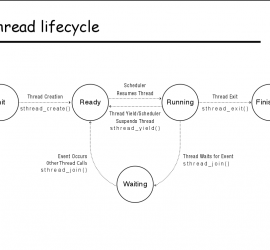[leetcode] Shortest Word Distance I && II && III
Shortest Word Distance I Given a list of words and two words word1 and word2, return the shortest distance between these two words in the list. For example, Assume that words = [“practice”, “makes”, “perfect”, “coding”, “makes”]. Given word1 = “coding”, word2 = “practice”, return 3. Given word1 = “makes”, word2 = “coding”, return 1. Note: You may assume that word1 does not equal to word2, and word1 and word2 are both in […]
